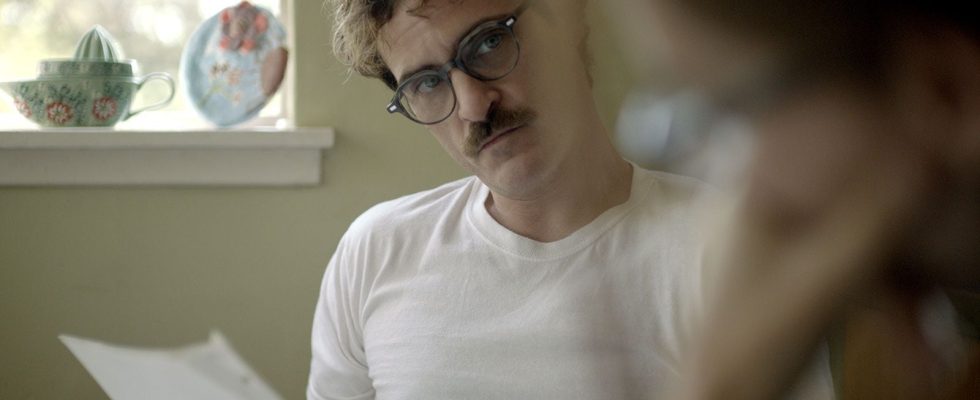Paris, April 2024. The broken gaze of Theodore Twombly suddenly appears during a presentation on artificial intelligence by one of the masters in the field, Yann LeCun. However, the man is not one of the scientist’s eminent colleagues or the boss of a popular start-up in the sector. Just a movie character, also identifiable by the thick mustache covering the top of his lips and his strawberry red shirt. In Her, directed by Spike Jonze, Twombly interacts with an artificial intelligence capable of dialogue and reasoning. A bit like a ChatGPT. A topical reference, therefore, which even becomes astonishing when we know that Her is already ten years old.
Discover the work for the first time is an experience in itself. If only for this unique love story between a man and a machine – the latter, in the cinema, have often had a greater tendency to want to destroy or manipulate us. Joaquin Phoenix plays Théodore, a public writer of the 21st century, who is not entrusted with his paperwork but with his desires, his secrets, his more or less hidden loves so that he can write them down with poetry on paper. A single man, too, recently divorced, dragging his spleen in what looks like a giant business district, pale and disembodied. A sensitive soul, who easily falls for the little things in life, including this advertisement for a brand new artificial intelligence. He puts on an earpiece and starts chatting with her. The warm and subtly gravelly voice of Scarlett Johansson, aka Samantha, proves to be a presence with which we want to let time pass.
But above all, a rewatch offers a strange mirror on our way of understanding this type of AI. Theodore’s perceptible distrust, before the exchange was more fluid, drifting onto intimate subjects, recalls the first discussions carried out with chatbots, who were asked for their opinion on anything and everything. The abandonment of personal and even professional tasks for the benefit of this new “assistant” – Samantha, for example, takes the initiative of producing a manuscript of Theodore’s best texts – is also a precursor. Its variation in an earpiece and a small pad, between the smartphone and the pin, is curiously prophetic at a time when this type of product is beginning to emerge in Silicon Valley.
Elodie Hachet, teacher of cinema history, author of a course dedicated to AI on the big screen, also sees very current messages on second viewing about our “techno-dependence”, and the flaws that software can sometimes exploit in us, voluntarily or not. Here, Theodore’s solitude. If the AI slowly began to emerge when Spike Jonze held the camera, the anticipation it offers of course suffers from some limits. In Her, Samantha reacts in particular like clockwork, showing a spontaneity and an empathy still inaccessible to our AI. It also has more freedoms and decision-making power than we seem ready to grant to artificial intelligence. At least for the moment. A third viewing, in 2034, could prove even more informative.
.
